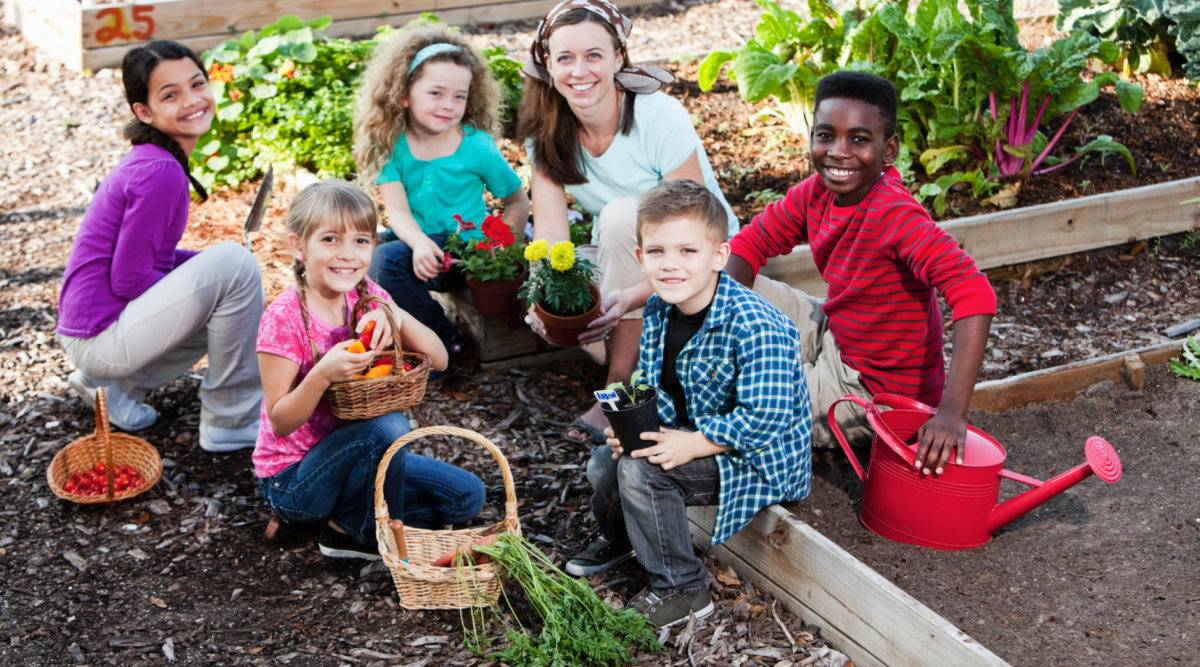5 Teaching Ideas Perfect for June
By: Leigh Underhill, MHSc, RD
It’s June – the school year is wrapping up, students are restless, and gardens and crops across Ontario are flourishing. It’s the perfect time to engage your students with food literacy and nutrition education activities. Here are some fun, no-fuss, food-based ideas to try with your class in the last days before summer break:
Mystery food: do this “fun for all ages” food exploration activity with your class, and consider using foods from Ontario’s June seasonal crops
Mock garden: (more appropriate with younger grades) have your class plan and create, using pictures, a mock garden of their own to grow vegetables and fruit that they like to eat- discuss which of these foods they think grow in Ontario/Canada
Visit a real garden: get outside with your class and visit a local community garden so students can see what foods are being grown in their own neighbourhood
Salad “potluck”: have each student bring in the fruit of their choice and work together to prepare and share a “class fruit salad” (if preferred, students could peel/cut the fruit at home) - discuss which of these fruits grow in Ontario/Canada
A potluck to celebrate students and their families: expand on the idea above to host a real potluck by inviting students to bring their favourite family cultural/traditional dish to share with their peers - invite families too. This is a great way to get students interested in cooking and to get everyone together to celebrate the end of another successful school year!
With hands-on food activities, be mindful of:
any student food restrictions, including allergies
safe food handling practices, including hand washing before and after food preparation and eating
ensuring that students never feel pressured to try a food.
Stay tuned for more lesson plans for the 2019-20 school year and additional resources to help you implement CDEF in your classroom.
We hope you have a great summer! Looking forward to connecting with you again in the fall!
References:
Adapted from Food Literacy, Food Security, and Local Food Procurement in Ontario’s Schools. October 2013. Sustain Ontario
https://sustainontario.com/custom/uploads/2011/02/SustainOntario_EducationBackgrounder_Oct20131.pdf
Food literacy (1) involves understanding:
where food comes from;
the impacts of food on health, the environment and the economy; and
how to grow, prepare and enjoy safe and nutrient rich foods.
Did you know?
Ontario Crops available in June include: strawberries, rhubarb, peas, lettuce, cherries, beets, beans, asparagus.


